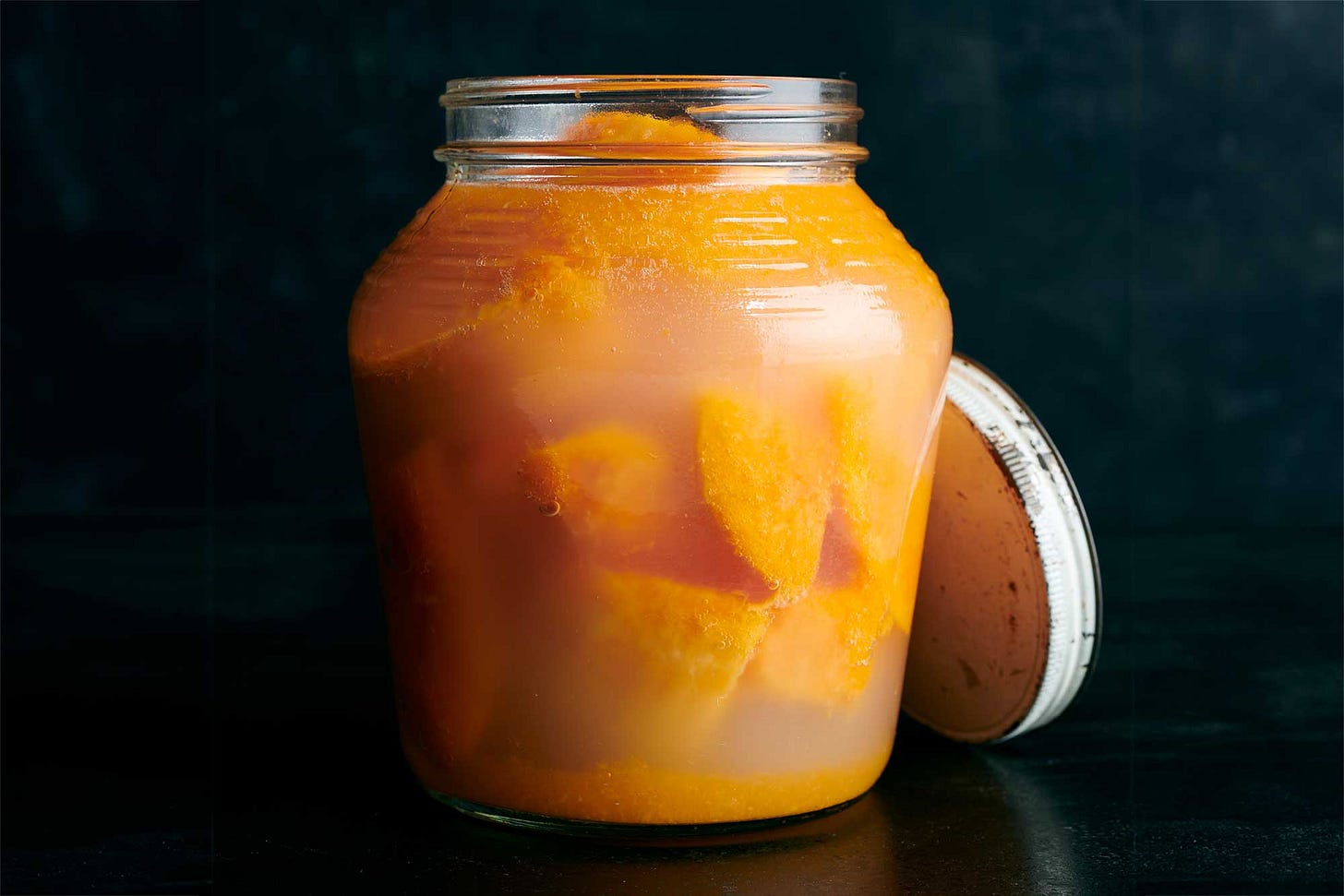Fermented Winter Squash
From Preserved: Vegetables, by Darra Goldstein, Cortney Burns, and Richard Martin
Excerpted with permission from Preserved: Vegetables; by Darra Goldstein, Cortney Burns, and Richard Martin; published by Hardie Grant Publishing, October 2024
Fermented Winter Squash
Yield: About 1 quart
Ingredients:
1 (2-pound / 900 g) winter squash, such as butternut, kabocha, or Hubbard
Diamond Crystal Kosher salt, for brine
Procedure
…


